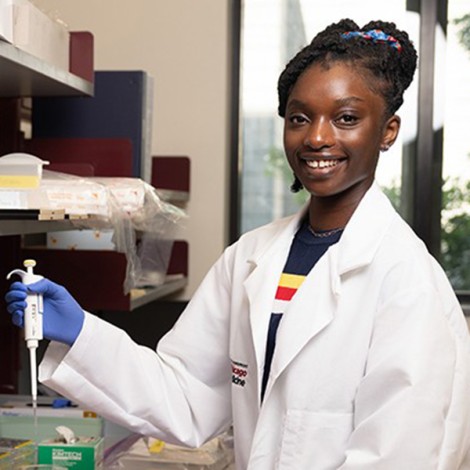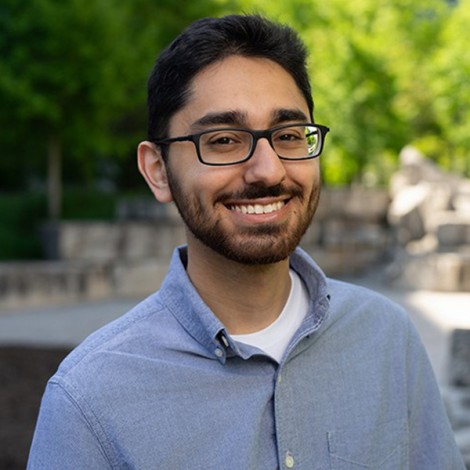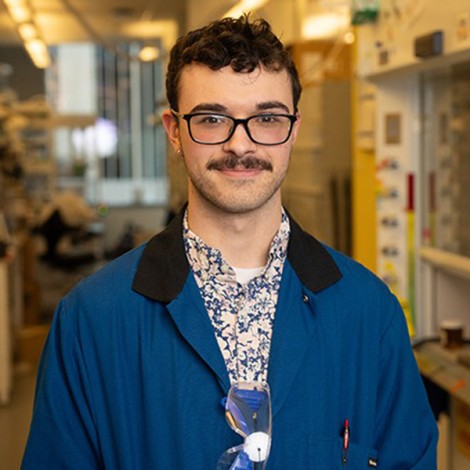The PhD in Molecular Engineering program at the University of Chicago Pritzker School of Molecular Engineering provides students with the opportunity to study with leading experts working in areas such as biotechnology, immunoengineering, advanced materials, energy storage, quantum engineering, and ensuring a clean global water supply.
A degree with a focus on Materials for Sustainability enables students to work with a team of internationally recognized materials scientists and soft matter engineers to understand and engineer solutions in energy, natural resources such as water, sustainability, and health. Our research in this area spans polymeric materials, new water purification methods, battery materials, sensing applications, self-assembly of materials to prevent and treat disease, and more.
A degree with a focus in Immunoengineering enables students to use engineering principles to understand immune system functions and innovate solutions addressing immunological problems in human health. Our research involves developing more potent therapies for the human immune system and using multifaceted approaches to better understand the fluid and cellular movement through tissues to the lymph system.
A degree with a focus in Quantum Engineering blends efforts from faculty in engineering, physics, chemistry, and computer science. Students interested in quantum engineering may also enroll in the Quantum Science and Engineering program. In both programs, students will work directly on the foundational technology that will shape the quantum future, including the areas of quantum computing, quantum communications, and quantum sensing, as well as research in quantum materials.
Among the many programs and initiatives available to students include the Chicago Immunoengineering Innovation Center, Chicago Materials Research Center, Midwest Integrated Center for Computational Materials, the Chicago Quantum Exchange, and the Department of Energy funded national quantum information science research centers Q-NEXT and SQMS.
Students perform their research in state-of-the-art facilities at both the University of Chicago and Argonne National Laboratory campuses, and have opportunities to gain industry expertise through interactions with UChicago’s Booth School of Business and the Polsky Center for Entrepreneurship and Innovation, as well as our industry and corporate partners. More opportunities are available through our robust programs in career development and entrepreneurship, science communication, mentoring training and opportunities, and educational outreach.
Program overview
Learn more about our curriculum structure, inclusive and student-centered approach to education and research, programs to support career development, and more.
Enroll today
Learn more about the application process, required documents, deadlines, and policy.


